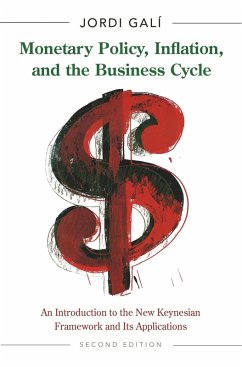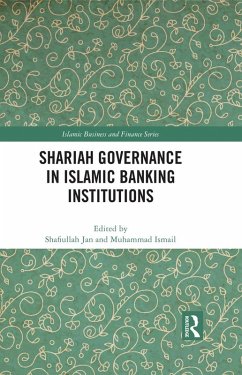
Monetary Policy, Islamic Finance, and Islamic Corporate Governance (eBook, ePUB)

PAYBACK Punkte
32 °P sammeln!
Toseef Azid, Murniati Mukhlisin, Nashr Akbar, and Muhammad Tahir bring together leading researchers to provide a state-of-the-art overview of the monetary policy, corporate governance, their legal and regulatory issues and procedures that structure Islamic banks (IBs) and other Islamic financial institutions (IFIs). Monetary policy and corporate governance are integral to macroeconomics and microeconomics while interest rates are a key part of monetary policy. Given negativity associated with interest rates, Islamic economists have sought alternative instruments. Focusing on the populous Musli...
Toseef Azid, Murniati Mukhlisin, Nashr Akbar, and Muhammad Tahir bring together leading researchers to provide a state-of-the-art overview of the monetary policy, corporate governance, their legal and regulatory issues and procedures that structure Islamic banks (IBs) and other Islamic financial institutions (IFIs). Monetary policy and corporate governance are integral to macroeconomics and microeconomics while interest rates are a key part of monetary policy. Given negativity associated with interest rates, Islamic economists have sought alternative instruments. Focusing on the populous Muslim countries such as Pakistan, Malaysia, Turkey, Bangladesh and Indonesia this book explains how corporate and shari'ah governance structures work together under the umbrella of Islamic monetary policy, and in the process, provides guidelines that how such structures improve corporate social responsibility in order to serve the best interests of all stakeholders. The chapters included here cover various features of IBs and IFIs, corporate performance and strategic analysis of microfinance shari'ah based non-banking institutions, in order to investigate the role that these processes play in shaping broader global financial systems. For instance, it portrays different governance models of central bank of a country like Iran having a shari'ah based financial system.In conclusion, Monetary Policy, Islamic Finance, and Islamic Corporate Governance: An International overview explores the interrelationships between corporate governance from the perspective of shari'ah, banking industry and Islamic monetary policy. This is a must-read for the corporate sector, banking experts and monetary authorities including academics and postgraduate students.
Dieser Download kann aus rechtlichen Gründen nur mit Rechnungsadresse in A, B, BG, CY, CZ, D, DK, EW, E, FIN, F, GR, HR, H, IRL, I, LT, L, LR, M, NL, PL, P, R, S, SLO, SK ausgeliefert werden.













